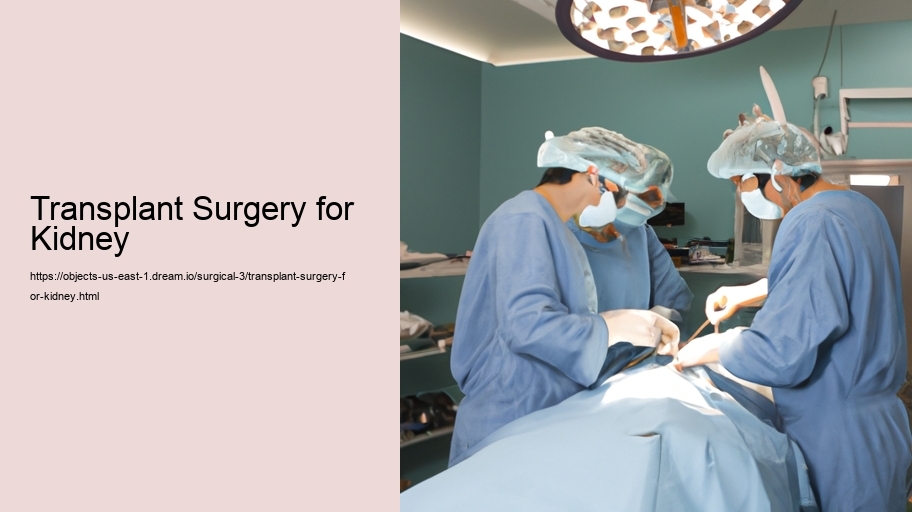Transplant surgery for a kidney is a life-altering procedure that offers hope and a renewed chance at health for individuals suffering from end-stage renal disease or chronic kidney failure. This intricate surgical intervention involves replacing a diseased kidney with a healthy one from a compatible donor. The journey towards a kidney transplant is often marked by a myriad of emotions, challenges, and expectations, both for the patient and their loved ones.
The road to transplant surgery begins long before the actual procedure. It starts with a thorough evaluation by a team of specialists who assess the patient's overall health and suitability for the transplant. This includes a series of tests and consultations that evaluate the patient's heart health, blood type, and tissue compatibility, among other factors. Once deemed eligible, patients are placed on a transplant waiting list, where they might spend months or even years, depending on the availability of a matching kidney.
Living donors, often family members or friends, who are willing to donate one of their kidneys, can significantly shorten the waiting period. The remarkable aspect of kidney donation is that humans can live healthy lives with just one kidney, which makes living-donor transplants a viable and often preferable option. Alternatively, kidneys from deceased donors can also be used for transplantation, giving new life to recipients and turning a time of loss into a legacy of hope.
The transplant surgery itself is a complex procedure performed under general anesthesia. The surgeon makes an incision in the lower abdomen of the recipient to place the new kidney. Interestingly, the diseased kidneys are usually left in place unless they cause complications like high blood pressure, infections, or are too large. The new kidney's renal artery and vein are then connected to the recipient's blood vessels, and the ureter, the tube that carries urine to the bladder, is attached to the recipient's bladder.
After the surgery, the patient is closely monitored for signs of the body accepting or rejecting the new organ. Rejection is a natural reaction of the immune system to a foreign object, and to prevent this, patients must take immunosuppressive medications for the rest of their lives. These drugs are crucial as they help the body accept the new kidney, but they also come with their own set of risks, such as making the patient more susceptible to infections and other health issues.
Recovery from kidney transplant surgery can be a lengthy process, with hospital stays typically lasting a week or more, followed by several weeks of recovery at home. Patients must adhere to a strict regimen of follow-up appointments, medication schedules, and lifestyle changes to protect their new kidney. Dietary modifications, regular exercise, and avoiding exposure to infections are all part of maintaining a healthy transplant.
The success of a kidney transplant can be transformative. Many recipients experience a significant improvement in the quality of life, with increased energy, reduced dietary restrictions, and freedom from dialysis. The ability to return to work, engage in social activities, and travel are just some of the positive outcomes that recipients can enjoy post-transplant.
Nevertheless, the journey does not end with the surgery. It is a lifelong commitment to health and vigilance to ensure the longevity of the transplant. Patients become active partners in their healthcare, working closely with their transplant team to monitor for any signs of complications.
In conclusion, kidney transplant surgery is a medical marvel that epitomizes the intersection of science, compassion, and resilience. It offers patients with kidney failure a second chance at life, allowing them to dream and plan for the future. While the path to and beyond transplant surgery is fraught with challenges, it is also paved with hope, signifying the remarkable human capacity to overcome adversity and embrace life anew.
